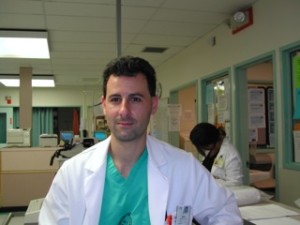What is Sarcoidosis?

Sarcoidosis is an uncommon and poorly understood multisystem disease that commonly affects the lungs and lymph nodes. However, it may affect any organ of the body. Despite decades of research, the exact cause remains unknown. The most common manifestation of the disease is enlarged lymph nodes in the chest and nodules and scarring in the lungs. The skin, eyes, heart, liver and nervous system may also be involved. Symptoms depend on the organs involved. When sarcoidosis involves the chest, patients may have cough, wheeze, chest pain or shortness of breath.
For more than 20 years, pulmonary hypertension specialists have recognized that patients with sarcoidosis develop pulmonary hypertension. Unlike many other causes of pulmonary hypertension, these patients seem to respond very well to treatment with medications approved for pulmonary arterial hypertension. Unfortunately, there have been no large randomized studies of the treatment of pulmonary hypertension complicating sarcoidosis. In fact, most studies in the past 2 decades have excluded patients with sarcoidosis.
Treating Pulmonary Hypertension with Sarcoidosis
Despite the lack of high quality data, PH-specialists have amassed substantial expertise in treating pulmonary hypertension in the setting of sarcoidosis. Our general treatment paradigm involves using PDE5 inhibitors (Sildenafil/Revatio or Tadalafil/Adcirca) first line and then using continuously infused prostanoid therapy (Treprostinil/Remodulin or Epoprostenol/Flolan) for sicker patients. We have had good results over the years.
We are very excited that Reata Pharmaceuticals, a new company in the pulmonary hypertension space, has announced plans to include patients with pulmonary hypertension due to sarcoidosis in their ongoing phase 2 study of bardoxylone methyl. This is a major milestone. Hopefully this will herald a new chapter in pulmonary hypertension studies where sarcoidosis patients are included.
